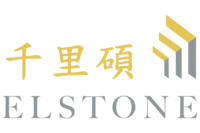- High compliance rates with the Listing Rules in respect of issuers’ annual report disclosure
- Isolated cases of potential material Rule non-compliance or breaches of directors’ duties were identified
- Recommendations were made in respect of auditors’ modified opinions, material lending transactions, and material intangible assets reported on issuers’ financial statements
The Stock Exchange of Hong Kong Limited (the Exchange), a wholly-owned subsidiary of Hong Kong Exchanges and Clearing Limited (HKEX), today (Friday) published a report (the Report) on the findings and recommendations from its annual review of issuers’ annual reports1 for the 2020 financial year end.
In its latest review, the Exchange continued to adopt a thematic approach, selecting a number of specific areas for review based on the results of previous years as well as areas considered to be of higher risks. The review also assessed issuers’ compliance with annual report disclosure requirements under the Rules, specific accounting standards in financial statements and the Exchange’s recommended disclosure in previous reports.
HKEX Head of Listing, Bonnie Y Chan, said: “We are pleased to note that Hong Kong listed issuers continue to achieve a high rate of compliance with the Listing Rule requirements for annual report disclosure.”
“HKEX is committed to further enhancing the quality of issuer’s disclosure to support the integrity of the market. In our thematic review in the areas of auditors’ modified opinions, asset impairments and material loans and advances, we identified isolated cases involving failures in the areas of internal controls and safeguarding of assets by directors. We encourage issuers to take note of the issues identified in this Report and follow guidance in the relevant areas.”
As part of its review, the Exchange has made the following recommendations to issuers:
- Auditors’ modified opinions–
Issuers should develop supportable estimates for asset valuations,
extensively document key judgements made and consider retaining experts
to perform asset valuations where necessary. Issuers should also engage
in early discussions with auditors to agree on the timing, form and
approach relating to the assessment of these estimates as early as
practicable. Audit committees should assess and challenge the
reasonableness of management’s assumptions and valuation methods
adopted. Before the audit commences, they should discuss and agree with
the auditors on any higher risk areas and the corresponding audit
approach, timetable and form of reporting on audit findings.
- Material lending transactions
– Issuers should establish proper internal controls to monitor lending
transactions, and where these activities are conducted outside their
ordinary course of business, the directors should have proper oversight.
Issuers engaged in money lending business are recommended to disclose
in annual reports details of this business segment including: (a)
business model and credit risk assessment policy; (b) major terms of
loans granted, size and diversity of clients and concentration of loans
on major clients; (c) management’s discussion on loan impairments and
reasons; and (d) other key internal controls.
- Material intangible assets reported on issuers’ financial statements – Issuers
should ensure that financial forecasts and key assumptions used in
impairment tests are reasonable and not overly optimistic, having regard
to historical cash flows, available market information and future
prospects. They should continuously review the clarity and transparency
of their disclosure of impairment tests.
The Report is available under the “Listing Regulations – Listed Issuers – Exchange’s Reports – Review of Issuers’ Annual Reports” section of the HKEX’s website.
Source: HKEx
